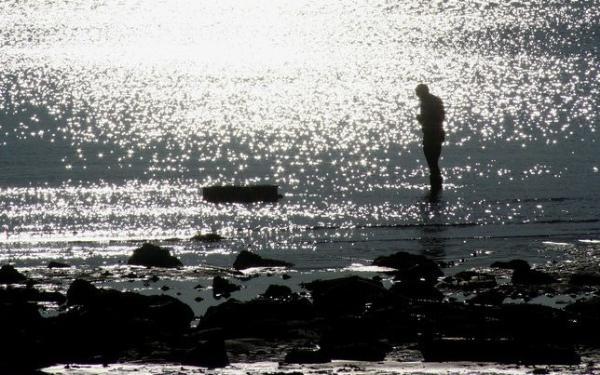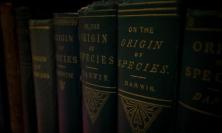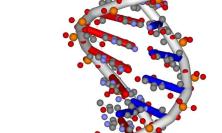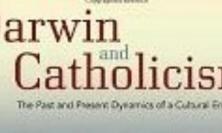How has evolutionary thinking after Darwin affected the way in which we understand our human identity? Does evolutionary psychology provide us with any insights into the origins of religious belief? Professor Celia Deane-Drummond argues that confronting head-on the tensions between theology and evolutionary science that might arise from asking such questions can lead to a new creativity in our self-understanding, as we approach a horizon in our human history.
In this lecture I will seek to set out some of the most pressing challenges facing a theological understanding of anthropology according to post-Darwinian evolutionary perspectives. The challenges relate to: the status of human origins when it comes to explanations that seek to tie us intimately with other primates; the status of religious belief, as some explanations portray religious belief as an emergent evolutionary property; the nature of human acts, such that saint or sinner become captive to evolutionary interpretations; and the future of human identity itself, as we are facing a transhuman horizon where humanity seeks to gain control of its own evolution. I will argue that while it might be tempting to press for theology as working on a different explanatory level to science, and so avoid some of these difficulties, facing the tension that ensues leads to new opportunities for a revitalised theological anthropology, one that emerges at the boundaries between humans and other animals or humans and the cyborg creations of technology. I hope to persuade you that evolutionary and theological accounts of human identity can inform one another by envisaging human and evolutionary history in an eschatological perspective, a theodrama that includes rather than excludes other creaturely kinds, and one that takes its ultimate bearings from Christology seen through the dramatic and particular passion narrative of Christ.
Human Origins and Religious Capacity
Charles Darwin was aware of the religious significance of his ideas even before the Origin of Species was published, but he hesitated in making this explicit. Mapping the sheer variety of the natural world according to evolutionary origins, rather than through divine fiat seemed threatening to religious belief, unless God was perceived as working through the process of natural selection, either directly or indirectly. But it was the significance of this view for human identity and human origins in particular that was especially troubling for religious believers. Darwin was prepared to say even in 1838 that, ‘Man in his arrogance thinks himself a great work worthy of the interposition of a deity. More humble and I think truer to consider him created from animals.’[1] This was controversial as science even at the time. For some time those who resisted this idea held up the belief that there are gaps in the evolutionary record between humans and other primates. But archaeological work since that time shows in a convincing way that there is no gap in the fossil record when it comes to the origins of human primates: Homo sapiens appears late on, showing an increase in relative brain size compared with other primates, but other hominid species were also around at the same time, not least the discovery relatively recently of H. floresiensis discovered on the island of Flores off the coast of Indonesia.
In other words, Homo sapiens is the sole survivor of multiple branches of the Homo species. Research also indicates that an increase in brain size occurred more than once in the course of hominid evolution, hence it is not unique to Homo sapiens. The increase in brain size also seems to be associated with tool use; those with larger brains would have a more developed capacity and so be at a selective advantage. But high intelligence, the ability to use tools and forms of communication are also characteristic of other primates and social animals, so it is a mistake to use such characteristics as criteria to separate humans from other animals. The differences are ones of degree, rather than absolute differences.
Yet when it comes to marking out what does seem to be a distinctive characteristic of humans, namely, the developed capacity for religious belief, further challenges start to surface in claiming that such capacities are purely evolutionary in origin. Sam Berry, for example, argues in favour of Homo divinus. He follows J.R. Middleton in saying that according to the Abrahamic faith, God ‘transformed humans’ at some point in their evolutionary history as Homo sapiens. For Berry, ‘The only alternative to this is to opt for a wholly naturalistic – which implies atheistic – origin for humankind’.[2] But how is this consistent with Berry’s claim as a biologist that, ‘There is no scientific support for the notion that we have been propelled towards a predetermined end by a Divine Watchmaker or even a Blind one’[3]?
Why do I find this dichotomy astonishing?[4] Because it presupposes that the account in the book of Genesis has to be taken at face value, that God is involved in the specific, creative act of making humans in a way that is not true of other species. This sets up a divide that splits apart humans from their evolutionary history, and makes God into a God who acts in the case of humans by direct intervention, rather than through evolution. This sets up a barrier between humans and other animals that smacks of an anthropocentrism that has unhelpfully dominated the history of Christian thought.[5] In other words, the idea of God intervening at some point in the history of Homo sapiens in order to make that species specifically religious seems to go against the sufficiency of God’s presence in the world through divine providence; the intervention slips in to fill the gaps of scientific knowledge. While Berry resists the crude notion of an external soul mechanically added to the body, he still seems to assume some special work of God at a particular period of history of Homo sapiens, initiating a transformation from sapiens to divinus.[6] Berry justifies this development by claiming that ‘We are apes, but we are more than apes and it is useful to mark this difference with a change of name’ [7]
Of course the difficulty that Berry faces is that on purely historical grounds it seems that Homo sapiens existed as a biological species long before any religious belief was in evidence as expressed through cultural artefacts. Perhaps this is a rationale for a change in name, but it implies that Homo sapiens prior to this transformation was not really what God intended, rather, only those who were able to respond in a manner appropriate to the stage of their cultural history. But can we really put ourselves in the place of God and decide who or what humans among Homo sapiens are worthy of the name human? Berry seems to be creating two subspecies of humans, H.sapiens and H.divinus, with the former inferior to the latter. But dividing humans historically on the basis of purported explicit religious qualities has serious social and moral consequences, as it opens the door for possible discrimination against human beings transformed from sapiens to divinus to a greater or lesser extent. Berry is not intending this development, but I am suggesting that he permits this possibility, which has ethical implications, much as Darwin’s categorisation of other humans as ‘primitive’ opened the way for slavery to flourish.
In some sense, Berry is on safe ground in the sense that understanding fully what happened in the course of H. sapiens evolutionary history is unlikely, given our time and distance from when the transformation he posits might have taken place: all we can see are hints of religious belief. But even then, when might we recognise what we see as divine intervention? Is it when particular belief in divine agency first takes place? Or is it when there is polytheistic belief? Or monotheism? Are we saying that God introduces humanity deliberately to superstition? Darwin in his Descent of Man was well aware of the difference between these forms of belief, and while he argued that belief in some sort of religious agency evolved, he distinguished this from belief in an Omnipotent God. In his chapter on mental powers he speaks about belief in religion in the following way:
If, however, we include under the term ‘religion’ the belief in unseen or spiritual agencies, the case is wholly different; for this belief seems to be universal with the less civilized races (p. 142-3) …..The belief in spiritual agencies would pass into the belief in the existence of one or more gods (p. 145)...[8]
The question that confronts us here is how far is belief in divine transformation in the history of Homo credible in the light of evolutionary history? Or should we seek another explanatory route, using anthropological and philosophical analysis? I agree with Berry that, like other animals, human beings are distinct and as humans are self-aware, religious beings they are distinct theologically. But attempting to map the Genesis account of the creation of humanity directly onto evolutionary history does not work as far as I am concerned, any more than forcing the days of the first creation into the Big Bang.
Of course, it is possible to take another tack and seek to engage critically with those evolutionary biologists who have sought to explain human religious belief by evoking explanations from evolutionary psychology. Pascal Boyer is an influential writer in this vein, and his Religion Explained charts an evolutionary account of religious belief and practices.[9] While Boyer writes more as a social scientist than an evolutionary psychologist in the strict sense, his approach draws on evolutionary psychology in as much as he speaks of mental systems and their adaptive functioning in a manner that presupposes it is basically correct.[10] Boyer considers the standard secular accounts of why religion exists, such as that it provides explanations of puzzling events or experiences, or provides comfort in the fact of mortality, or that it provides social order or that it is a cognitive illusion.[11] All of these, he suggests, fail to address the issue of why religion is there at all. He suggests, rather, that there is not so much a ‘religious’ domain in the mind, as religious ideas distributed among different mental systems, such that religion impinges on thoughts, emotions and particular behaviours, more often than not in a way familiar to one’s social milieu.
Scott Atran writes in a similar vein in his In God’s We Trust. [12] Like Boyer, Atran sees religion as coming from ‘the ordinary workings of the human mind as it deals with emotionally compelling problems of human existence’. [13] He makes the case for a ‘naturalistic’ approach to anthropology. He argues that evolution sets the framework for religion and culture, but does not absolutely determine its development. He believes that Boyer represents those who concentrate on cognitive theories of religion and counterfactual beliefs. This focuses on the way the mind works in particular ways in processes of cultural transmission. As such, Atran suggests that this ignores motivation. On the other hand, he suggests that a second group that includes authors such as Sober and Wilson focus on religious belief in terms of individual or group costs and benefits, paying relatively little attention to cognitive architecture. A third group studies religious belief by focusing on experiential theories and states of altered consciousness, so that neuro-physiological responses are tracked during mystical and other states. Finally, a fourth group is concerned with psychosocial dynamics of liturgy and ritual. None, Atran argues, adequately answer the question as to why religious belief is able to underpin moral order in a way that no secular ideology is able to do for very long. Yet his particular explanation for the existence of belief in a supernatural agency seems far from satisfactory. For him, such beliefs are ‘in part, by-products of a naturally selected cognitive system for detecting agents – such as predators, protectors and prey – and for dealing rapidly and economically with stimulus situations involving people and animals’. [14] While I have little objection to arguments for the biological basis for religious capacity, the impression in much of this writing is that this is all that is needed in order to account for religious belief.
Are Other Animals Moral?
While strong evidence of religious capacity seems to emerge relatively late according to the archaeological record of H.sapiens species, that does not necessarily mean that other animals are not capable of at least what might count as behaviour that has some moral characteristics. The discussion here seems to boil down to what we mean by morality. If we define morality in a loose way, namely ‘to judge right and wrong, good and bad, and to behave accordingly’, [15] then there is a possibility that animals might have this capacity. Of course, the more complex our definition of morality, the less likely we are to find such capacities in non-humans. However, from a biologist’s point of view, what matters is the extent to which underlying capabilities are present, regardless of how far this might then come to be expressed in different shapes and forms in social and cultural terms. In other words, it is the capacity to make moral judgements that is relevant, not whether there is a sophisticated system of ethics that is the prerogative of the human animal. As Marc Bekoff suggests, ‘we do not have to ascribe to animals far fetched cognitive or emotional capacities to reach the conclusion that they can make moral decisions in certain circumstances’.[16]
Empathy is also a capability that exists in animals that is there even before the influence of language and culture. There is a high selection pressure in its favour, because non-human primates rely on emotional mediation for their communication with one another. ‘Emotional contagion’ is perhaps the first stage of empathy, which allows the animal to feel the distress of another; true helping motivations will go beyond this. Frans De Waal, using experimental evidence based on numerous observations, believes that monkeys are only capable of emotional contagion, with genuine helping and consolation behaviour confined to apes. [17] Such capabilities also seem to be related to the degree of self-awareness as shown by mirror self-recognition. In addition, social animals show a degree of acceptance towards those in their group that are injured or born with difficulties, as shown by examples of tolerance of, for example, a mentally retarded monkey in a group of rhesus macaques. In this instance, and many others, the popular idea of individual survival of the fittest does not make sense. [18]
Yet we should be wary of painting too glowing a picture of primate behaviour. Characteristics that would in human beings be called ‘sin’ are also present in ape behaviour through their tendencies towards violence to one another. [19] However, reconciling strategies, which have a particular protocol depending on the species concerned, may also follow violent eruptions. These behaviours seem to be learned, rather than arriving simply out of some sort of supposed ‘blind’ instinct. Where conflicts of interests arise within groups, many non-human primates seem to show similar strategies to humans for resolving, managing and preventing these conflicts of interest. The behaviour expressed takes the form of, for example, reciprocity and food sharing, reconciliation, consolation, conflict intervention and mediation, which are ‘the very building blocks of moral systems in that they are based on and facilitate cohesion among individuals and reflect a concerted effort by community members to find shared solutions to social conflict’. [20] Putting together rhesus and stumptail juvenile monkeys, where normally only the rhesus exhibits quarrelsome behaviour, showed that over time the rhesus monkey learned to be more tolerant.[21] This, and other experimental work, shows that primates are able to learn traits such as tolerance, rather than simply arising out of inbuilt instincts.
The Future of Human Identity
Transhumanism, offered as the next stage in human evolution, is the view that humans should be permitted to use technology in order to re-make human nature.[22] It differs from posthumanism in as much as posthumanity is largely concerned with an ideal future where such transitions have already happened. Transhumanism assumes that intelligence is the mark of what makes us human. My concern here is to explore the more specific claim of transhumanists that their project represents a new stage in the evolution of humanity. A range of means is used in order to affect this supposed evolutionary process, including smart drugs, nanotechnology, prosthetics, computer-assisted communication and genetic modification – humanity become superhumanity.[23] Such technology promises to create a new species that is beyond Homo sapiens, so that, ‘Humans have beaten evolution. We are creating intelligent entities in considerably less time than it took the evolutionary process that created us. …. Human intelligence – a product of evolution – has transcended it.’[24] Elaine Graham puts her finger on the problem of transhumanism when she describes it as ‘a confusion of anthropocentric triumphalism and evolutionary determinism’ [25]
Yet more than this, the elevation of one aspect of human capacity through transhumanism seems bent on taking away human beings from their self-understanding as creaturely, rooted in the evolutionary life world in a way that Darwin was so keen to admit. Yet we can come back to the problem that I posed originally: how can we both admit to being creaturely, grounded in the evolutionary story, without becoming wedded to a purely naturalistic explanation of human identity? In order to begin to solve this problem, I suggest that we need to search for a different way of portraying theological belief and evolutionary explanation. The temptation to either synthesise both so that they say the same thing, or separate them so that they are saying entirely different things is strong. What is needed, then, is a way of giving some autonomy to each area, without losing the insights of the other partner in the dialogue. One way to do this is to envisage human life in its evolutionary origins, identity and future as being part of a theodrama, but it is a drama that is not exclusive to human beings, but inclusive of other creaturely kinds. The paradigmatic drama for how to live a fully human and fully flourishing life is then found in the particular theodrama exemplified in the life of Jesus Christ. But in this view, Christ is not simply a moral exemplar for human behaviour, but a way of reading history in an eschatological key in theodramatic terms, where God becomes fully human in showing what that drama entails. John Haught has also noted the importance of drama in thinking through how to connect theology and evolutionary accounts. The difference between his view and mine is that in his case drama seems to take its cue from the dramatic unfolding of the evolutionary narrative, rather than being centred on the passion of Christ. Further, in his view the future of evolutionary history moves towards a process view of beauty as that to which the universe tends. I am rather less convinced by a Whiteheadian paradigm, preferring to portray the future in more classical theological terms, such as glory, a glory that is still hidden from human capacity to fully appreciate.
Professor Celia Deane-Drummond is Director of the Centre for Religion and the Biosciences at the University of Chester.
This article is an edited version of a paper delivered at the Christians in Science Northern Conference in Edinburgh on 19 March 2011.
The Centre of Religion and Biosciences will be hosting a conference on Animals as Medical Subjects on 24 May. Speakers include Professor Celia Deane-Drummond, Professor David Jones and Sister Margaret Atkins. Information about the conference can be found on the University of Chester website or by clicking the links below.
[1]Bulletin of the British Museum (Natural History). Historical Series 2, 1960.
[2] Berry, ‘Biology After Darwin’, SRF Conference Proceedings, 2009, in A. Robinson, ed., Evolving Darwinism: From Natural Theology to a Theology of Nature, in press, 2011.
[3] Berry, ‘Biology After Darwin’.
[4] More detailed commentary in C.Deane-Drummond, ‘Homo divinus: myth or reality’, in Robinson, ed., Evolving Darwinism.
[5]For discussion on this and other related matters see C. Deane-Drummond and D. Clough, Creaturely Theology: On God, Humans and Other Animals (London: SCM Press, 2009).
[6] The idea of Homo divinus is also used by John Stott, who seems to be the first person to use the term. R.W. Stott, Understanding the Bible (London: Scripture Union, 1972), p. 63.
[7] Berry, ‘Biology After Darwin’.
[8] Charles Darwin, The Descent of Man and Selection in Relation to Sex [1871] (London: Penguin, 2004).
[9] Pascal Boyer, Religion Explained: The Human Instincts that Fashion Gods, Spirits and Ancestors (London: William Heinemann, 2001).
[10] Boyer refers to evolutionary psychology as a ‘Tool-kit’, while suggesting that evolutionary psychology, in the strict sense of tracing back particular traits to our earliest ancestors, is ‘still very much in its infancy’ (Boyer, Religion Explained, p. 135). He is also enthusiastic about Steven Pinker, Robert Wright and Matt Ridley in his annotated list of further reading (p. 382).
[11] Boyer, Religion Explained, pp. 6-7.
[12] S. Atran, In God’s We Trust: The Evolutionary Landscape of Religion (Oxford University Press, 2002).
[13] Atran, In God’s We Trust, p. viii.
[14] Atran, In Gods We Trust, p. 15.
[15] S. Planalp, Communicating Emotion: Social, Moral and Cultural Processes (Cambridge: Cambridge University Press, 1999), p.161.
[16] Marc Bekoff, The Emotional Lives of Animals (Novato: New World Library, 2007), p. 109.
[17] De Waal, Frans, ‘Morality Evolved’, in Frans de Waal, Macedo, S. and J. Ober, ed., Primates and Philosophers: How Morality Evolved (Princeton: Princeton University Press, 2006) p. 31.
[18] De Waal, Our Inner Ape: The Best and Worst of Human Nature (London: Grant Books, 2006), p. 217.
[19] I am aware that ‘sin’ is often defined as specific breakdown in relationship with God, in which case such a category would be inappropriate. But if sin is considered in social terms, then animals could be said to share in ‘sin’. This of, course, raises other theological issues, see C. Deane-Drummond, ‘Shadow Sophia in Christological Perspective: The Evolution of Sin and the Redemption of Nature’, Theology and Science, 6 (1), 2008, 13-32.
[20] Jessica C. Flack and Frans B.M. de Waal, ‘Any Animal Whatever’: Darwinian Building Blocks of Morality in Monkeys and Apes’, in Katz, ed., Evolutionary Origins of Morality: Cross Disciplinary Perspectives (Thorverton: Imprint Academic, 2000), p. 1.
[21] De Waal, Our Inner Ape, p. 147-8.
[22] This definition is taken from Heidi Campbell and Mark Walker, ‘Religion and Transhumanism: Introducing a Conversation’, Journal of Evolution and Technology, 14.2 (August 2005), 1.
[23] Terranova, Tiziana, ‘Posthuman Unbounded: Artificial Evolution and High Tech Subcultures’, in G. Robertson, ed., Future Natural: Nature/Science/Culture (London: Routledge, 1996), p. 165.
[24] Kurzwell, Ray, ‘The Coming Merging of Mind and Machine’, Scientific American, 10.3 (1999), 60. Such ideas of having overcome the chanciness inherent in natural selection were also uppermost in the early enthusiasms expressed for the human genome project. For discussion see C.Deane-Drummond, ed., Brave New World: Theology, Ethics and the Human Genome (London: Continuum, 2003).
[25] Graham, Elaine, Representations of the Post/human (Manchester: Manchester University Press, 2002) p. 160.
![]() Centre of Religion and Biosciences
Centre of Religion and Biosciences ![]() ‘Animals as Medical Subjects’ conference
‘Animals as Medical Subjects’ conference






